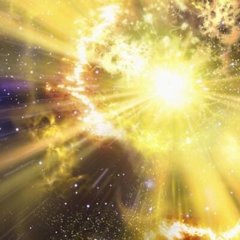All Activity
This stream auto-updates
- Past hour
-
So, briefly ; first a lot of the history is contested , records are either scant , come from further away or latter sources. The 'Indian' sources seem mostly in written works ( like stories and plays ) but not so much history . Its one of those 'great subjects' ( like IE replacement / migration into NE India ; AMT or AIT as opposed to OOI - theories ) where Indian and Western scholars can argues about indefinitely . And within those arguments I have often noted , is this really about 'India ' .... at most some claimants to India or 'invaders' of India rarely got across the Indus . Post of it was into what we know today as 'Pakistan ' ... even the original name came from the earliest Avestan scriptures ( Zoroastrian) in the Vendidad .... the lands in the area (mostly around Central Asia ); 'The Nations of the Vendidad' mentions ' Sind ' and 'Hapta Hindus' or similar Indus , India . And again mostly refers to the same area ( the seven rivers ) . Rarely has anyone in ancient times penetrated into the main 'sub-continent - geographically . Alexander came and had a look ..... Nah . Then went south , and as they do they put in 'settlers' , again , in this area bordering on the Indus ( parts of ... sorta ... 'Satrapies' of the old Persian Empire's far south - east ) . Alexander died , and his general Seleucis got that slice of the pie . So The Mauryan Empire and post Mauryan Empire had some areas of Greek settlement that became 'Indianised' . Buddhism became pop with some . Then their Greek Bacteria Empire split in two and the closest part to India became Indo-Greeks . When weakness and collapse happened in the east they moved east .. across the top of India , but not far . This seems to be due to them throwing their lot in with the successors of Maurya Empire , which only held parts of India , mostly these parts ( Indus , Punjab , north and central east who where battling a nasty fellow that wanted to overtake the rest and seemed to enjoy killing Buddhists . That all sorts collapsed and they retreated back west . So that seems as far as the 'Greco Bactrian ' invasion went . After that much more of the Sub-continent was taken over but not by 'Greco-Bactian' but Kushites . That's what I seem to make of it so far . What did you want to discuss ?
- Today
-
Thers this site on FB that's chock full of discussions of various topics, from a 4th Way/Sufi perspective. A friend who's a bit of a 'sorcerer' directed me to this;
-

Different types of anxiety, an 8 Circuit perspective
cloud recluse replied to cloud recluse's topic in General Discussion
Follow up discussion- 1 reply
-
- gurdijeff
- eight circuits
-
(and 1 more)
Tagged with:
-

Different types of anxiety, an 8 Circuit perspective
cloud recluse posted a topic in General Discussion
Is this a useful model? What do peeps think ? This is a discussion group found on youtube.- 1 reply
-
- gurdijeff
- eight circuits
-
(and 1 more)
Tagged with:
- Yesterday
-
Thanks for the clarification. I've seen long term dedicated students of this system say this to other people on other threads as well. Appreciate you being willing to set the record straight. For the record, I don't think I'm particularly evil. I'm just a middle-aged dad who enjoys walking the dog and painting plastic model kits. I've never felt inclined to hurt anyone. But it did make me wonder about whether I was a real bastard in a past life. Perhaps I'm just insensitive to what it's doing internally. I wouldn't say I'm a particularly subtle person. Maybe time to give it another go
-
This is the sort of banter they didn't want on AG TBs is full of it .... and we survive ! They also didn't want silly converse and people posting memes and supposedly related video music hits .
-
Daft ? - that's rude .
-
Hi. I am Paisleykaat. I am just starting on my study of Daoism. It came about as a result of learning Chinese. I am still a beginner in that too. Thank you for having me here, and I look forward to learning more.
-
You can start with that last post there ^
-
Hi Vajra Fist, Important points of clarification: There is no inference or implication that "if the FP Qigong 'doesn't work' for someone, then that someone is 'evil'." First of all, I had never stated nor written that "Flying Phoenix Qigong doesn't work for evil people"---nor has any other instructor in Bok Fu Pai arts nor any of my in-person students. What I quoted Grandmaster Doo Wai as having said is this: "Evil people will not to practice Flying Phoenix Qigong." • And I will elaborate upon this statement to explain exactly what GM Doo Wai meant based on my being in the room with him when he said it, and based on my direct experience in teaching FP Qigong since 1992: "Evil people will not continue to practice FP Qigong once they have tried it and felt its effects--because evil people DO NOT like the way FP Qigong transforms their body-mind to pristine health." The implication is that FP Qigong works on everyone--to some varying extent. The fact is that evil and corrupted people who are intent to continue doing evil, will not practice FP Qigong because they don't want to stop their ways--i.e., they don't want their nervous system reprogrammed to not do evil. The implication ( and yogic fact) being that FP Qigong is so steadily transformative of the body-mind to a pristine (and at times blissful) state of health (homeostasis) that any person who is so bent on doing evil (and is thus so mentally bent by evil) will not allow anything or any influence coe near that might unbend him/her. The implication being that there is no such thing as "original sin." That's the reality that's experientially proven by Feng Do Duk's Ehrmei Mountain Flying Phoenix Qigong. That's the experience shared by GM Doo Wai when he said, "Evil people will not practice Flying Phoenix Qigong." Relatedly, the healing and purifying effects of FP Qigong are so extremely powerful that after years of practice, one becomes thoroughly and deeply calibrated to discern and recognize evil energy instantly (on a neurological level)--and even distinguish between different "grades" of evil. In November 2024, I wrote this substack article about sighting and almost confronting a prolific serial killer, Lonnie Franklin Jr., in L.A in August 1995. (This article was in follow-up to my Oct. 10 article about attracting and crossing paths with another serial killer 9 years earlier in 1986 [named Michael Player, aka. "The Skid Row Killer"] in the Miracle Mile district of L.A., and explaining how that earlier was my harshest lesson in anger management.) https://open.substack.com/pub/terencedunn/p/seeing-the-grim-sleeper-in-my-very?r=5i7g9&utm_campaign=post&utm_medium=web&showWelcomeOnShare=false In this substack article, I explained how I was able to instantly recognize this person (who later turned out to be Lonnie Franklin Jr., aka the "Grim Sleeper") the instant I laid eyes on him as I was checking out of a Ralphs supermarket in LA and he was 4 check stands away to my right. When I wrote the article, I attributed my ability to instantly recognize him as a dangerous killer --AND knew that he had just killed someone--to my practice of the Tao Tan Pai Nei Kung system for the previous 21 years. But I am stating here and now that I believe that my "ability to instantly recognize" was also attributable--to much lesser extent--to having practiced FP Qigong for 4 years, as of August 1995. My experience-based belief is that being in the constant self-healing state of allostasis (self-healing) and its higher state of consciousness (due to its deeply mind-body integrating yogic mechanism) enabled by FP Qigong practice enables one to readily recognize on a cellular energy level anything that is extremely opposite in nature--i.e., evil destructive energy. I hope this clarifies. Sifu Terry Dunn P.S. This is the link my earlier written article in 2024 about my encounter with "The Skid Row Killer" on October 8, 1986: https://open.substack.com/pub/terencedunn/p/sifu-terry-dunns-tai-chi-for-health-ac0?r=5i7g9&utm_campaign=post&utm_medium=web&showWelcomeOnShare=false
-
So what’s your ‘My Attachments’ % (here on TDB)? I guess I better get deleting.
-
It's pretty obvious. 😍 In any case, everyone is enlightened because atman and Brahman are one and the same.
-

i figured out physical superpowers (no jokes or philopsohy bs} this a direct guide im being serious
Cobie replied to Mana conduit's topic in Systems and Teachers of
. -
LMAOOO bro you got me haha hhaha it's okay
-
ok. you are “illumination”-luke.
-

i figured out physical superpowers (no jokes or philopsohy bs} this a direct guide im being serious
Cobie replied to Mana conduit's topic in Systems and Teachers of
OP clearly didn’t find his piece worthy of proper grammar and spelling. -

i figured out physical superpowers (no jokes or philopsohy bs} this a direct guide im being serious
BigSkyDiamond replied to Mana conduit's topic in Systems and Teachers of
if someone puts forth destruction ("kill" "blast") through actions, intention, thoughts, words then that is what returns upon them this sounds like a recipe for putting self in harm's way -
Don't be daft, you were one of the good ones. Glad to see you still around.
-

Spirit and soul, what is it and what differentiates them?
liminal_luke replied to Surya's topic in General Discussion
I remembered that Thomas Moore distinguished between soul and spirit in his book Care of the Soul. Feeling lazy, and not remembering well, I asked Gemini (AI) about Thomas Moore´s distinction. Although I´m loathe to quote AI (what kind of a creature am I turning into?) I´ll make an exception this once. .................................................................................................................................................................................................... Thomas Moore, particularly in his seminal work "Care of the Soul," makes a significant distinction between soul and spirit, drawing heavily on archetypal psychology (especially that of James Hillman, who was influenced by Carl Jung). This distinction is central to his philosophy and offers a different perspective than traditional religious or psychological views. Here's a breakdown of his distinction: Soul: Emphasizes Depth and Complexity: For Moore, the soul is not an ethereal or purely spiritual "thing" that ascends beyond the body. Instead, it's about the depth, richness, and complexity of human experience. It's about how things feel to us, the nuanced textures of life, and the imaginative dimension of existence. Rooted in the Ordinary and Mundane: The soul isn't found in extraordinary, transcendent moments, but rather in the everyday, the mundane, the imperfect. It's in cooking, gardening, tending to relationships, appreciating art, and even in our struggles, flaws, and suffering. Imagination as its Organ: Moore argues that the imagination is the primary organ of the soul. It's through imagination, dreams, myths, and symbols that the soul expresses itself and reveals its meanings. Embraces Pathology and Shadow: The soul is not about perfection or constant happiness. It embraces the "dark" aspects of life – sadness, melancholy, suffering, even neuroses. These are seen not as problems to be fixed, but as expressions of the soul that need to be listened to and understood, rather than eradicated. Connected to the Body and World: The soul is deeply embodied and connected to the material world. It finds expression and meaning through our physical experiences and interactions with the environment. "Care of the Soul": The concept of "care of the soul" involves paying attention to this imaginative, emotional, and embodied dimension of life. It's about finding meaning and depth in our ordinary experiences, embracing our vulnerabilities, and cultivating a sense of the sacred in the mundane. Spirit: Tendency Towards Transcendence and Abstraction: Moore often associates "spirit" with a drive towards transcendence, purity, and abstraction. It's the part of us that seeks to rise above the earthly, the messy, and the imperfect. Can Lead to Disconnection: While not inherently negative, an overemphasis on spirit, without the grounding of soul, can lead to a disconnection from the body, emotions, and the realities of human experience. It can foster an attitude of trying to "fix" or escape problems rather than understanding them deeply. Associated with Certain Religious or Ideological Stances: In some contexts, Moore sees "spirit" as leading to rigid moralism, simplistic answers, or an avoidance of the complexities and ambiguities of life, precisely because it seeks to transcend them. Can Be Disembodied: When spirit is detached from soul, it can become disembodied and lacking in depth, leading to a superficial or overly intellectualized approach to life. In essence, Moore's distinction can be summarized as: Soul is about immanence: Finding depth, meaning, and sacredness within the ordinary, messy, and embodied experience of life. It's earthy, imaginative, and embraces the full spectrum of human emotions and imperfections. Spirit is about transcendence: Reaching beyond the ordinary, towards ideals, purity, and a more abstract, often disembodied, realm. Moore isn't necessarily against "spirit" as a concept, but he critiques a modern tendency to prioritize spirit over soul, which he believes leads to a loss of meaning, emotional disconnection, and a shallow approach to life's challenges. His work is a call to reclaim and cultivate the soul, bringing depth, imagination, and a sense of the sacred back into our everyday lives.













